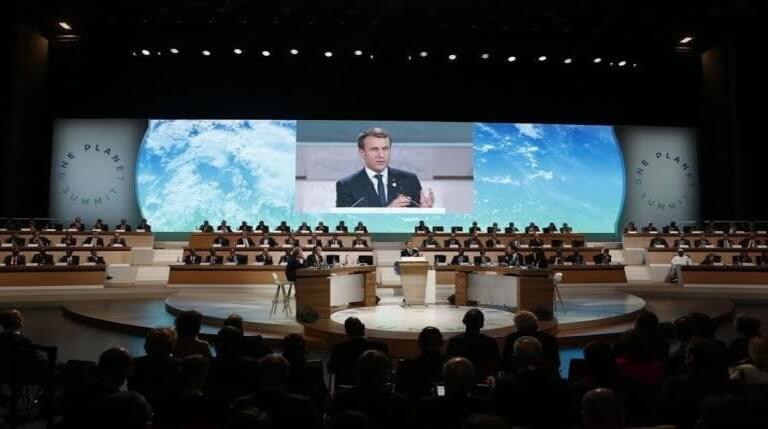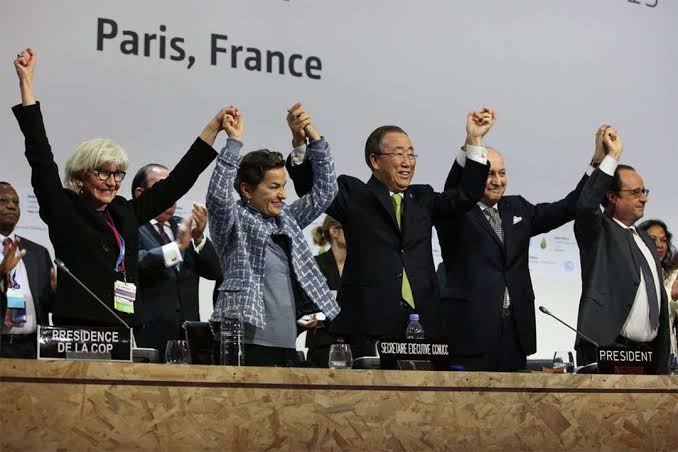
The biodiversity crisis has top billing as France host its One Planet Summit on Monday in an effort to develop a new framework that will protect Ecosystems and species. Held alongside the UN and World Bank, the event will lay out plans of actions on managing land and marine protected areas, agro-ecology, financing biodiversity and the fight against deforestation. The summit is run by the Elysee Palace, with about 10 participants on sites and the rest joining online among those taking part are UN Secretary-General Antonio Guterres, World Bank President David Malpass, Britain’s Prince Charles, European Commission President Ursula Von Der Leyen, German Chancellor Angela Merkel, Canadian Prime Minister Justin Tradeau, European Central Bank President Christine Lagarde and World Health Organization head Tedros Adhanom Ghebreyesus.
With the connection between biodiversity loss and human health established by world experts, France President Emmanuel Macron has tasked France with leading the way forward in 2021. “On the five year anniversary of the Paris agreement, I want France to be able to mobilize the international community once again” Macron said in September, as he announced the summit would go ahead despite the Covid-19 pandemic. “The ocean, the poles, the tropical forests all belong to the common heritage of humanity”. Given 2020 was largely a “lost year” for the environment, with several major global summits either cancelled or postponed, scientist say the next 12 months will be crucial. Chile Cop 26 was derailed by the global corona virus crisis, as the World Conservation Congress of the International Union of Conservation of Nature (IUCN), which was scheduled for last June in maseille.

The Covid-19 pandemic highlights the worrying multiplication of zoo noses diseases that pass from animal to humans as a result of increased contact between humans and species whose wild habitats are being destroyed. “It is true the decision making has been postponed by a year which is quite significant in view of the pressures on natural ecosystem today” said Maud Lelierre, President of France Committee of the IUCN. “On the other hands, the Covid-19 pandemic has shown even more clearly that the biodiversity crisis is a major political issues. This health crisis has had at least this revealing effect on many people”.
Statement by the President of the Republic of Seychelles, HE, Warel Ramkalawan on the one planet summit “the planet and humanity are going through challenging times with the Covid-19”. Nevertheless we need to continue to talk and discuss our challenges and priorities as we dialogue on the future in reference to the preservation and protection of nature. It is important that we act together for nature. The Covid-19 pandemic has certainly reminded us about the importance of the environment in our lives and economies. For small Island developing states like the Seychelles, biodiversity is the basis for the survival of our people and also a most important pillar of our economy.
We are very happy to see that one of the key themes of the summit is protection of land and marine ecosystems. This is aligned directly within our national priorities and challenges in moving forward particularly at the state of the implementation of our marine spatial plan comprising of the 30% protected are; Seychelles is calling on the world to join us in this endeavor. We need all the help and support, Seychelles knows that it is through partnership with the private sector and philanthropic organization that SIDS can deliver on our environmental ambitions.
In his address the President of African Development Bank Group Dr. Akinwumi Adesina. “I wish to thank President Macron for inviting me to the One Plant Summits, Great Green Wall Investment Summit, in a complex world that requires strong leadership, you are providing amazing leadership on the climate agenda”. As we rebuild from the corona virus and its impacts on our world, we must recalibrate growth that protects the environment and biodiversity, and we must de-prioritize growth that compromises our global commons. The great green wall is part of Africa environmental defense system – a shield against onslaughts of desertification and degradation. The future of the sahel region of Africa depends on the great green wall without the great green wall, in the face of climate change and desertification, the sahel may disappear.
The great green wall is a wall worth building. A wall that brings people together, not one that pulls them apart. A wall that insulates, not one that isolates. A wall that protect our collective existence, a wall for the environment a wall for the planet. By building the great green wall, we will secure the sahel reduce climate change, reduce migration and improve the lives of the people. The African Development Bank has launched a $20 billion Desert to power program to build the largest solar zone in the world in the sahel. This will provide electricity for 250 million people and help protect the great green wall. If there is no access to energy, the great green wall will be no more than trees waiting to be turned into charcoal, Dr. Akiwumi said.
